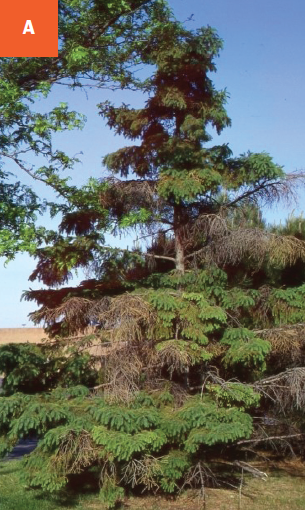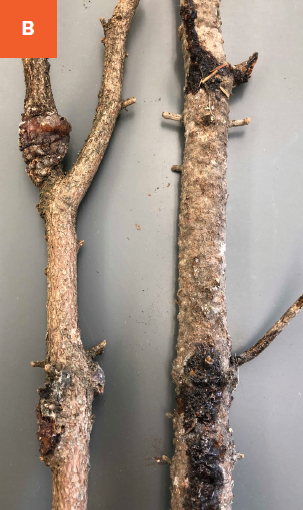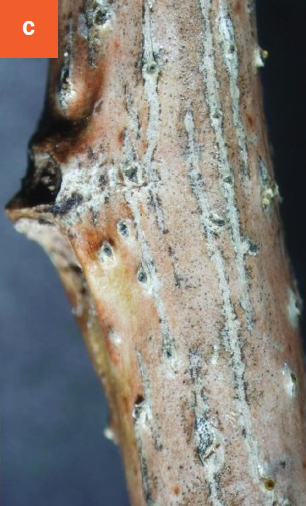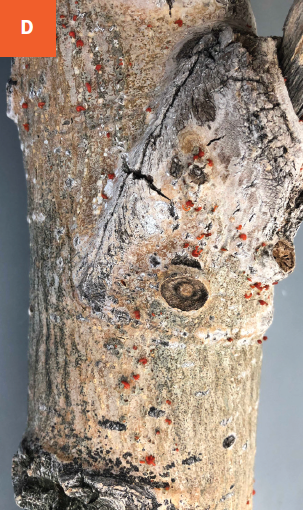Cytospora Canker
Cytospora spp. (fungus); sexual form: Valsa spp. or Leucostoma spp.
HOST Cottonwood, aspen, ash, spruce, apple, maple, birch
DAMAGE/SYMPTOMS This disease mainly affects stressed trees.Spruce: cankers form on infected branches and are often covered in a whitish-bluish resin. The fungus girdles the branches from within, resulting in yellowing or browning of needles and dieback of the branch above the canker. Branches appear to die in an upwardly progressing spiral pattern.Deciduous trees: cankers on the branches and/or trunk often are different in color than the rest of the branch. Bark might appear yellowish, brown, reddish-brown, grayish, or black. Small, black, pimple-like fruiting structures may appear on the cankers. During wet conditions, orange spirals of spores emerge from the fruiting structures. Aspen trees might emit a liquid ooze while cherry or peach trees discharge a gummy ooze.
DISEASE CYCLE The fungus overwinters in canker tissue on affected branches and/or trunks. During wet weather, spores are released from the fruiting structures and dispersed by splashing rain and wind. The spores infect stressed trees through fresh wounds.
MANAGEMENT Reduce stress on trees by providing adequate water and nutrients during the season. Avoid wounding the branches and trunks during cultural practices (lawn mower, weed trimmer). Remove and dispose of affected branches during dry weather. Disinfect pruning tools after each cut with 70% ethyl alcohol or a standard household disinfectant spray. Consider planting resistant varieties.
A Spruce tree affected by cytospora canker. B Young cankers on branches of spruce trees. C Dark colored fruiting bodies developing on infected branch. D Orange spores oozing out of fruiting bodies of a cottonwood tree branch.




